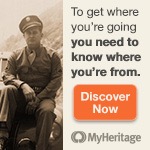by Diahan Southard | Apr 12, 2017 | 01 What's New, Genealogy Gems Podcast
The Genealogy Gems Podcast
Episode 202
Lisa Louise Cooke
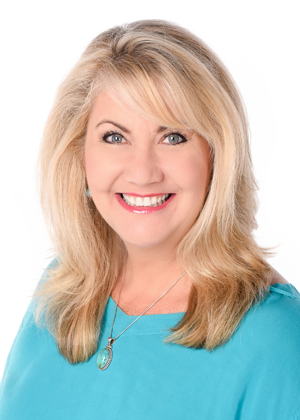
Highlights of this episode include:
- AncestryDNA’s new Genetic Communities: An Interview with Catherine Ball, Ancestry’s Chief Scientific Officer;
- Meet contestant Joe Greer from Relative Race, the genealogy reality show;
- The new Genealogy Gems Book Club featured title: a novel from an internationally best-selling author
- A botched reference to the 1950 census in a Stephen King novel?and 5 tips for counting down to the 1950 census release in exactly 5 years
- Naming traditions tip from a listener
- Lisa’s Google search strategies: search operators, YouTube and more
NEWS: ANCESTRYDNA GENETIC COMMUNITIES
Ancestry.com rolls out AncestryDNA Genetic Communities
FREE VIDEO: Introducing AncestryDNA Genetic Communities
Genealogy Gems Podcast episode 201 about new AncestryDNA study
NEWS: MYHERITAGE CONSISTENCY CHECKER
Access by logging in to your MyHeritage account and find this tool under the Family Tree dropdown menu:
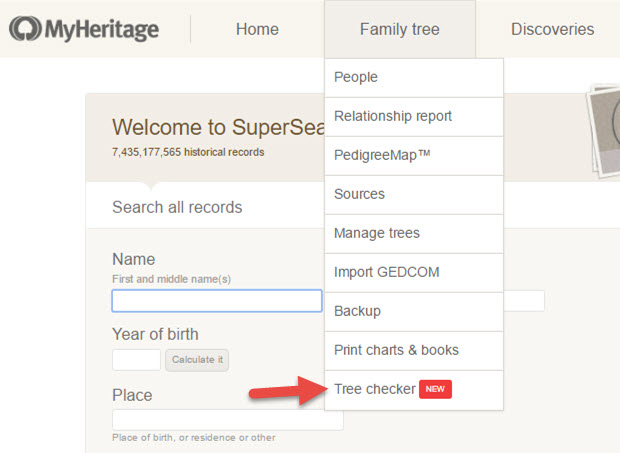

This podcast is sponsored by:


MyHeritage.com is the place to make connections with relatives overseas, particularly with those who may still live in your ancestral homeland. Visit www.MyHeritage.com
A Similar Tool: RootsMagic Problem Search
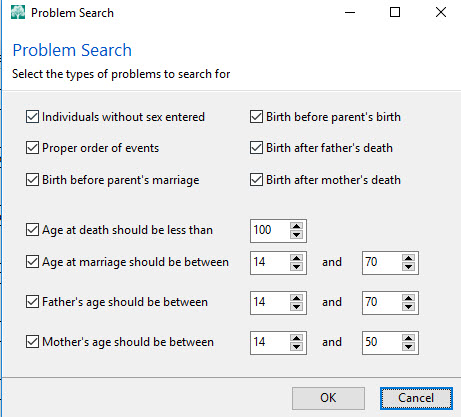

In RootsMagic, find it under the Tools menu. Select Problem Search, then Problem List to select the different kinds of problems you can have RootsMagic identify for you and to choose what age ranges you decide are out of bounds for a new father or mother.
Thank you to our podcast sponsors:

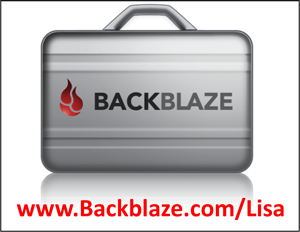
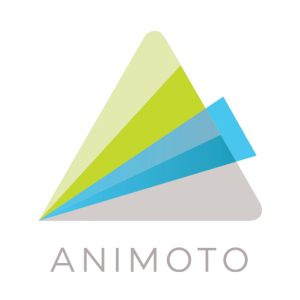
MAILBOX: NAMING TRADITIONS

Norwegian naming traditions tip from a listener
Irish naming conventions mentioned in this Q&A with Irish expert Kate Eakman
Mexican Genealogy Guide by David A. Fryxell
2 more places to find naming traditions:
Google search: for the name of the country or ethnic group, plus naming traditions
FamilySearch Wiki
MAILBOX: GOOGLE SEARCH OPERATOR TIP: “Oppenheim the butcher, NOT the bomb!”
FREE VIDEO TUTORIAL:
Speak Google’s Language: Google Search Operator Basics
The Genealogist’s Google Toolbox, 2nd edition by Lisa Louise Cooke
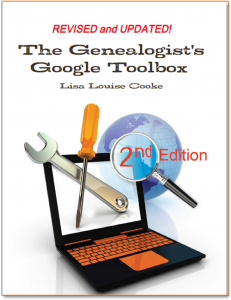
MAILBOX: STEPHEN KING AND THE 1950 CENSUS
To search inside books in Amazon:

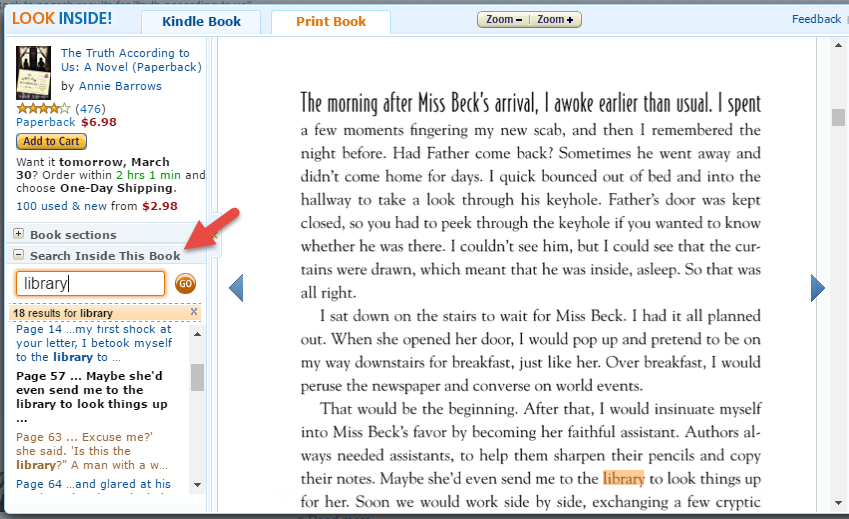

INTERVIEW: JOE GREER ON RELATIVE RACE
Meet Team Black: Joe and Madison Greer of Portland, OR
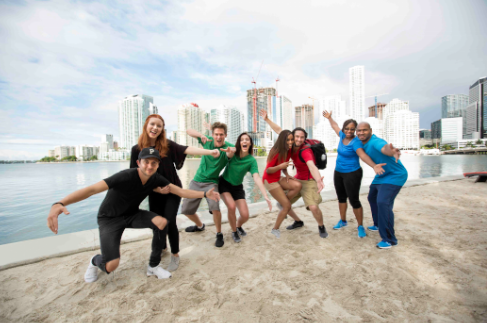
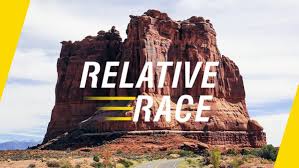
Relative Race: “What happens when genealogy meets reality TV? Using their DNA as a guide, contestants embark on the ultimate road trip across America, completing challenges and meeting unknown relatives along the way.”
Click here to watch past episodes online for free. The last two episodes of season two, 9 & 10, will air back to back respectively at 7pm MT/9pm ET and 8pm MT/10PM ET on Sunday, April 30.
Click here to learn more about the show
BONUS CONTENT FOR GENEALOGY GEMS APP USERS
Free PDF summary of 8 top genealogy TV shows from the past several years and where you can watch them online?a few of them for free, including Relative Race.
The Genealogy Gems app is FREE in Google Play and $2.99 for Windows, iPhone and iPad users.
INTERVIEW: Catherine Ball, Chief Scientific Officer, Ancestry.com
About Catherine Ball: Chief Scientific Officer at Ancestry
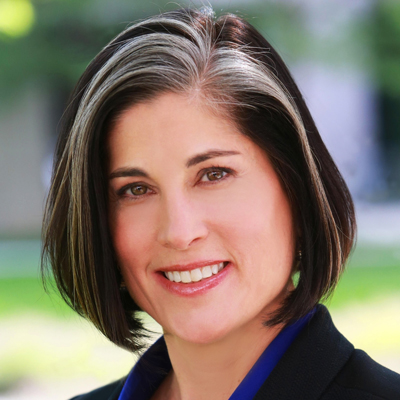
FREE VIDEO DEMO: Introducing AncestryDNA Genetic Communities
Study using AncestryDNA data identifies group migration patterns
Thanks to Your DNA Guide Diahan Southard for joining us to talk about this new development in genetic genealogy. Click here to learn more about Diahan’s how-to DNA video tutorials and personal consultation services for solving your family history mysteries with DNA.
GENEALOGY GEMS BOOK CLUB
New featured title: The Whole Town’s Talking by Fannie Flagg
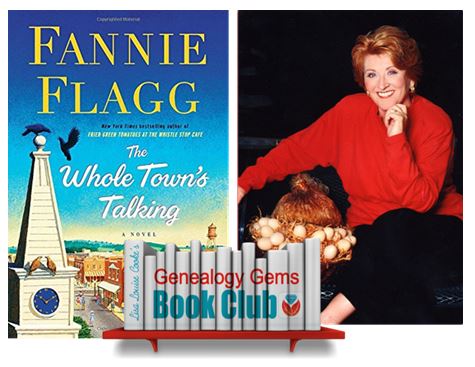 A multi-generational novel about a Swedish immigrant and the town he builds in the American Midwest by luring other Swedish settlers and a mail-order bride. As characters die, they take up residency in the local cemetery and continue to comment on the activities and people of the town.
A multi-generational novel about a Swedish immigrant and the town he builds in the American Midwest by luring other Swedish settlers and a mail-order bride. As characters die, they take up residency in the local cemetery and continue to comment on the activities and people of the town.
Also recommended by Fannie Flagg: The All-Girl Filling Station’s Last Reunion
New from past Book Club authors:
The Missing Man by Nathan Dylan Goodwin, a novella in his popular Forensic Genealogist series
Everyone Brave is Forgiven by Chris Cleave is now available in paperback
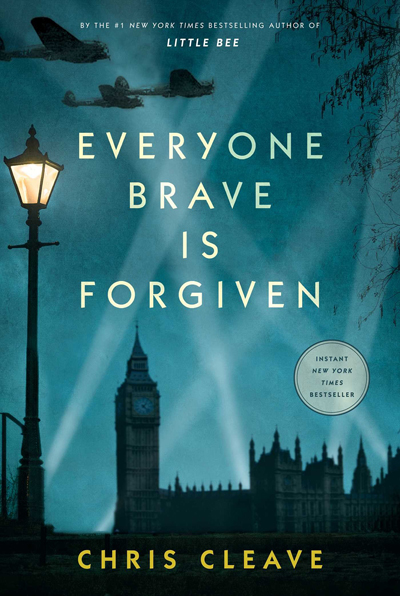
PROFILE AMERICA:
THE LOUISIANA PURCHASE
PRODUCTION CREDITS
Lisa Louise Cooke, Host and Producer
Sunny Morton, Editor
Diahan Southard, Your DNA Guide, Content Contributor
Lacey Cooke, Service Manager
Vienna Thomas, Associate Producer
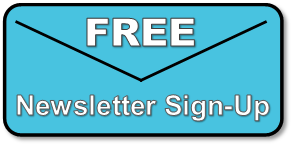
Check out this new episode!
by Lisa Cooke | Oct 24, 2013
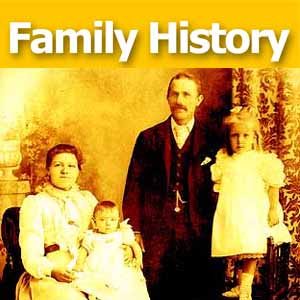 New to podcasts? Read Frequently Asked Questions (about the podcasts, how to listen and how to subscribe for free.) Welcome to the Family History: Genealogy Made Easy Podcast, a step-by-step series for beginning genealogists—and more experienced ones who want to brush up or learn something new. I first ran this series in 2008. So many people have asked about it, I’m bringing it back in weekly segments.
New to podcasts? Read Frequently Asked Questions (about the podcasts, how to listen and how to subscribe for free.) Welcome to the Family History: Genealogy Made Easy Podcast, a step-by-step series for beginning genealogists—and more experienced ones who want to brush up or learn something new. I first ran this series in 2008. So many people have asked about it, I’m bringing it back in weekly segments.
Subscribe for free in iTunes
Episode 1: GettingStarted. Special Guest: Margery Bell, Assistant Director of the Oakland, California Family History Center. Her own family history journey started in her 20s with a visit to a relative’s house. She didn’t even know what to talk about! But it was a start. Years later, she visited the Northern Ireland home of her great-grandmother, and felt like she’d come home. Learn her tips for getting started and two inspiring stories of “genealogy serendipity.” Then you’ll learn why choosing a database for your family tree is your first essential step. Hear about some of my favorite databases—both free resources and products you can pay for. Don’t spend too much time fussing about software: I’ll tell you why you should just pick something and go with it.
Episode 2: Interviewing Skills. Special Guest: Cath Madden Trindle, a well-known family history instructor and certified genealogist. Cath talks about discovering dysfunction in her family (don’t we all have that?) and the new appreciation she gained for her family as a result. She also gives us some great tips on how to share what we find. Then we’ll talk about interviewing your relatives. That’s an important skill for any genealogist—beginner or more advanced—because you’ll need to interview people over and over again. Hear about you who you should interview, what to ask and how to ask it! You’ll also learn two important traps to avoid that will save you a lot of time and keep you from losing everything you learn.
Episode 3: Working Backwards, and Social Security Death Index. Special Guest: Miriam Robbins, a well-known genealogy blogger and teacher. She shares her best research tips, what motivates her to delve into her family history and how that discovery has enriched her life. In our second segment we answer the question “Why do we work backwards in genealogy?” and then fire up the Internet and go after your first genealogical record. We’re going to dig into the U.S. Social Security Death Index.
Episode 4: Conference and Vital Records. Special guest is the longtime online news anchorman of genealogy, Dick Eastman, the author of Eastman’s Online Genealogy Newsletter. He talks about the changing industry and the benefits of attending genealogy conferences. Next, you’ll learn the ins and outs of using some “vital” sources for U.S. birth and death information: delayed birth records, the Social Security Death Index (SSDI) and Social Security applications (SS-5s) and death certificates.
Episode 5: Unlocking the Past and Home Sources. Special guest is genealogy author and publisher David Fryxell. I’m going to be talking to him about locating valuable family resources and the importance of being tenacious in your research. Then in our second segment we’re going to help you along on your own genealogy journey by talking about the importance of scouring your home for family clues and creative and effective ways to get the words out to your relatives so that family history information finds you!
Episode 6: Sleuthing Techniques and Genealogical Records. A genealogy writer and educator talks to us about sleuthing Sherlock Holmes-style for our families. He says, “Stop looking for names and start looking for families!” Then I’ll give you an overview of the different kinds of historical records in which our ancestors may appear. Whenever a life event happened that involved the government or a church, paperwork was generated: vital records, land sales, wills and probates, baptisms and burials. There is often a ripple effect in which the event was reported in other sources, like newspapers. In future episodes, we’ll talk in depth about finding and using these different kinds of sources. But consider this episode your orientation to them!
Episode 7: Best Genealogy Websites Part 1. Special guest: Lisa Alzo, popular genealogy lecturer and writer (now the author of nine books and online genealogy instructor at Family Tree University and the National Institute for Genealogical Studies. We talk about her reasons for researching her family history and what she’s learned in her genealogical journeys (which include international travel in Eastern Europe). Then we tackle an essential topic: the best subscription websites for genealogical data. This is a two-part topic: in this episode I talk about sites that require payment to access their core content. In Episode 8, we’ll talk about the fantastic free websites that are out there.
Episode 8: Best Genealogy Websites Part 2. In a follow up to last week’s episode about subscription genealogy records website, in my first segment our guest is Yvette Arts, Director of Content Partnerships at World Vital Records. She tells us about exciting developments at the website that have helped make it a success. In our second segment we look at five organizations that provide free online access to genealogy records for those with North American roots: FamilySearch, the National Archives of the United States, Ellis Island Foundation, the National Archives of the United Kingdom, and Library and Archives Canada.
Episode 9: Using Census Records. Let’s talk about a group of records critical to U.S. family history research: U.S. Federal Census Records. You’ll learn not only what to find in the regular schedules, but about the enumerators, the instructions they followed, and special sections like the economic census. Then we go straight to the source: Bill Maury, Chief of History Staff at the U.S. Census Bureau. I’ll be talking to him about the History section of the Census Department’s website. Note the updated Genealogy tab on the site, as well as the Through the Decades tab, which is packed with historical information for each census.
Episode 10: Deeper into Census Records. We continue exploring U.S. Federal Census Records. Last episode we located relatives in the 1930 census, and today we’re going to push further back in time to follow the census bread crumb trail. We even explore some census enumerations that often go overlooked by family historians with Curt Witcher, the Manager of the nationally-recognized Genealogy Center at the Allen County Public Library in Fort Wayne, Indiana. Curt has some great tips for tapping in to more obscure census resources. We’ll talk about nonpopulation schedules for the federal census, census substitutes for missing census data (like the 1890 census) and state censuses that may be available, too.
Episode 11: Census Wrap-Up: Decade-by-Decade to 1790. We welcome back genealogy researcher, author and lecturer Lisa Alzo. The author of Three Slovak Women, Baba’s Kitchen and Finding Your Slovak Ancestors talks about discovering family traits and putting them in perspective. Then we wrap up our three-episode coverage of U.S. census records with a decade-by-decade overview of censuses from 1880 back to 1790. We talk about special schedules taken during one or more censuses: mortality, slave, social statistics and supplemental, agricultural, manufacturing and the DDD (Defective, Dependent and Delinquent) schedules.
Episode 12: Post an Online Family Tree. In this episode we focus on posting your family tree online. There’s no use in re-inventing the research wheel! By posting what you know about your family tree online you can easily connect with others who are researching people in your family tree. You can share information, collaborate and even get to know distant relatives.
Episode 13: Genetic Genealogy and Photo-Sharing. Episode 13 reviewed genetic genealogy and photo sharing products that are either now longer offered or are outdated. This episode is not being republished with the series. Click on the show page anyway to see some updated suggestions and links to some of the top services for genetic genealogy and photo sharing.
Episode 14: How to Contact Long-Lost Relatives. Connecting with someone who knows about our ancestors can really boost our research results—and even create new relationships among living kin. But it’s not always easy to send that first email or make that first call. In this episode, we chat with my cousin, Carolyn Ender, who has mastered the art of “genealogical cold calling” by conducting hundreds of telephone interviews. She has a knack for quickly connecting with folks she doesn’t know over the telephone in ways that put them at ease and bring to light the information that she’s looking for.
Episode 15: More Tips for Contacting Distant Relatives. In today’s episode we talk more about “genealogical cold calling” with my cousin, Carolyn Ender, who has conducted hundreds of telephone interviews. Relationships are key to genealogical success and by following 14 genealogical cold calling strategies you will find your research relationships multiplying.
Episode 16: The Family History Library Catalog. In this episode we get acquainted with the largest repository of genealogy materials in the world: The Family History Library in Salt Lake City, Utah. It’s free and available to the public and I’m going to get you ready to make good use of it through the online Family History Library catalog (and its companion collection of digital records). Podcast guest Don R. Anderson, Director of the Family History Library, describes the evolving direction of the Family History Library and its host site, FamilySearch.org.
Episode 17: Using Family History Centers, Part 1. This episode is the first of a series in which we answer questions about Family History Centers (now also known as FamilySearch Centers), the regional satellite facilities of the main Family History Library in Salt Lake City, Utah. When I’m done with you, you won’t have a single excuse left for hesitating to use these wonderful family history research resources! My guest is Margery Bell, Assistant Director of the Oakland Family History Center in Oakland, California. In this episode she introduces us to the Family History Center, walks us through the process for ordering and using microfilm and discusses the wide range of resources at local Family History Centers. Even if you’ve already been to a Family History Center, you’re still going to learn some new things along the way!
Episode 18: Using Family History Centers, Part 2. Margery Bell returns to the show to keep talking about using Family History Centers. She preps us for our visit to a local center and reveals the subscription websites you can use for free while you’re there. Margery discusses making copies in all forms, the future of digitizing microfilm, and the future of Family History Centers. We also talk about tips for visiting the main Family History Library in Salt Lake City, Utah.
Episode 19: Using Family History Centers, Part 3. In this final episode on Family History Centers, Margery Bell talks about the educational opportunities available through Family History Centers, including the new online Wiki. Margery gives us her Top 7 Tips for getting the most out of your visit to a Family History Center. Finally, she inspires us with some stories of genealogical serendipity that she has experienced over her many years working at Family History Centers.
Episode 20: The Genealogical Proof Standard. In this episode we talk about the Genealogical Proof Standard, or GPS. My guest is Mark Tucker, a software architect and avid genealogist. Mark gives us an overview of the GPS and tells us how he got started using it. Then he shares a cool mapping tool he created to help us use the GPS. We’ll wrap by talking about how the GPS map can be effectively used for breaking down your research brick walls.
Episode 21: RootsMagic and Irish Genealogy Research. Lacey Cooke guest-hosts this double-feature episode on two big topics in family history: RootsMagic genealogy software and how to get started in Irish research. Bruce Buzbee, president and founder of RootsMagic Genealogy Software, talks about his industry-leading software. We also welcome Irish genealogy expert Judith Wight to talk to us about how to find those elusive Irish ancestors! Listen for her tips on finding Church of Ireland records, civil registrations, estate records and how history helps us understand gaps in the records.
Episode 22: Legend Seekers. Did you ever catch the PBS documentary Legend Seekers? It aired in 2009 and is now classic genealogy TV. Executive producer Ken Marks joins us on this episode of the podcast. He talks about the unique approach of this show for its time: the family history stories he brought to life were from everyday folks (not movie stars or rock stars) who have some very extraordinary stories in their family tree. Then Ken talks about the genealogical serendipity that he has his crew found themselves tapping into throughout the production.
Episode 23: Using the Genealogical Proof Standard. We put the Genealogical Proof Standard (GPS – see Episode 20) into practice with an example from my own research. Researching by these standards now saves us time and work, and also from making avoidable mistakes. Some downloadable free tools that will help you use the GPS. In this episode we also follow up with a listener question on how to export your family tree from Ancestry.com.
Episode 24: Using Marriage Records in Family History. Two types of marriage records are discussed in this episode: civil and church. Learn some great tips for finding and using U.S. marriage records, as well as the different types of government documents that might exist.
Episode 25: Using Civil Birth Records in Family History Research. In this first of a 2-part series on birth records, we explore government birth records with professional genealogist Arlene H. Eakle, PhD. She will helps us to see the challenges we face and the success we can have locating civil birth records.
Episode 26: Using Church Birth Records in Family History Research. We finish up this two part series by talking about church birth records. Helping us in the hunt again is Arlene Eakle, PhD. Check out the show notes on the episode page for exciting updates to the original conversation–including how to chase down (online!) the original source of material in the International Genealogical Index.
Episode 27: Find Your Family History in Newspapers, Part 1 .Newspapers offer such a unique perspective on history in general, and our ancestors specifically. In this first in another 2-part series, Jane Knowles Lindsey at the California Genealogical Society shares top tips for finding historical newspapers.
Episode 28: Find Your Family History in Newspapers, Part 2. In this episode, Jane Knowles Lindsay shares inspiring stories about the kinds of family items she’s found in newspapers. She offers a dozen more fantastic tips on researching old newspapers. You can find everything from birth, marriage and death announcements, to school and club event, crime stories, land transactions, sports activities and just about any other activity that your ancestors were part of that made the news!
Episode 29: Immigration and Naturalization Records for Family History, Part 1. Genealogy lecturer and blogger Stephen Danko, PhD, begins a 3-part series on U.S. immigration and naturalization records. Learn about passenger arrival lists in the U.S., little-known certificates of arrival and naturalization records: how to find them and what’s in them.
Episode 30: Immigration and Naturalization Records for Family History, Part 2. Stephen Danko continues this series by focusing on passenger departure records created in European ports. He also talks more in-depth about U.S. naturalization records.
Episode 31: Immigration and Naturalization Records for Family History, Part 3. Stephen Danko talks in-depth about passenger list annotations and the immigrant’s experience at Ellis Island. You didn’t know what you were missing with those mysterious scribbles on 20th-century passenger manifests!
Episode 32: Organize Your Genealogy Files, Part 1. Learn from my tried-and-true system for organizing your genealogy materials on your hard drive. First we talk organization–anyone can do it! there’s no magical gene for it–and then we talk some specifics: creating surname file folders and other types of file folders you’ll want for genealogy purposes.
Episode 33: Organize Your Genealogy Files, Part 2. The second in a series on organizing your genealogy materials on your computer. This episode walks you through a system for organizing family history on your hard drive. Creating a series of genealogy file folders, filenames you can find easily, where to file photos and other tips are here.
Episode 34: Do Your Genealogy at the Public Library, Part 1. Genealogy librarian Patricia VanSkaik talks to us about researching at public libraries. She shares what kinds of things may be at the library (including unique resources), how to prepare for a visit and lots of great tips for making the most of your research time there.
Episode 35: Do Your Genealogy at the Public Library, Part 2. We go deeper into genealogy research at the public library. Genealogy librarian Patricia VanSkaik is back to talk about how to search an online library card catalog including advanced search methods, the unique collections that may be at public libraries, how to ask for exactly what we want, and the obstacles librarians face when it comes to cataloguing large and unique collections that may interest genealogists.
Episode 36: Your Genealogy Questions Answered, Part 1. This episode is all about YOU! It is made up completely of your emailed questions, comments and stories. I couldn’t do this podcast without you, and I definitely want it to be a two way conversation. Joining me on today’s episode to read your emails is my daughter, Lacey Cooke.
Episode 37: Your Genealogy Questions Answered, Part 2. More Q&A with you! Topics include: downloading all the podcasts at once; keeping old family group sheets; how to know when records and indexes are complete; Google Alerts; comment on FamilySearch digital books collection; how to pronounce “genealogy” and who plays the music on the podcast.
Episode 38: How to Start a Genealogy Blog, Part 1. The Footnote Maven, author of two popular blogs, joins us to talk about the process of starting a genealogy blog. She gives great tips for thinking up your own approach, finding a unique niche, commenting on other people’s blogs and more. This is a fascinating inside look into the geneablogging community, whether you’re interested in starting your own or not!
Episode 39: How to Start a Genealogy Blog, Part 2. This week we continue to explore of family history blogging. In this episode I interview TWO more successful genealogy bloggers, Denise Levenick (author of The Family Curator and alter ego of “Miss Penny Dreadful” on the Shades of the Departed blog) and Schelly Tallalay Dardashti (author of the Tracing the Tribe blog).
Episode 40: How to Start a Genealogy Blog, Part 3: Step by Step. In this episode, learn step-by-step how to create your own free family history blog on Blogger.com. Learn tricks for designing a simple, useful blog and how NOT to overdo it!
Episode 41: How to Start a Genealogy Blog, Part 4: Blog readings. Get inspired by two seasoned bloggers who each read a great post for you. And hear a special announcement about an exciting project I’ve been working on.
Episode 42: How to Start a Genealogy Blog, Part 5. In this concluding episode to the 5-part blogging series, I talk about adding a few more gadgets and details, pre-planning your blog posts, publishing your first article, and how your readers will subscribe. You’ll also get great tips on how to create genealogy content that others looking for the same ancestors can find easily online.
Episode 43: The Julian Calendar and Genealogy. If you’re not familiar with how the calendar has changed through history, you might be recording incorrect dates in your family tree! In this episode, Margery Bell, Assistant Director of the RegionalFamily History Center in Oakland, California helps us understand the “double-dating” we see in old documents and translate those dates from the Julian calendar to today’s Gregorian system.
Episode 44: Family Secrets in Genealogy. Today’s episode is unlike any other I’ve done on the podcast. We are going to tackle some difficult subject matter: family secrets in genealogy. None of us have a perfect family tree. In fact, at some point each one of us who are delving into our family’s past will likely come across some sad and painful stories. An ancestor abandoned at an asylum, incarcerated for acts of violence, or perhaps who committed suicide. Crystal Bell, my guest on today’s show shares her story of finding her mother.
Episode 45: Genealogy Blogs Started by YOU! The Podcast Listeners. In recent episodes of this podcast, we’ve been discussing how and why to create a genealogy blog. In this episode I’m going to share some of the family history blogs that YOU—the listeners—have created. I’m hoping you’ll be inspired to blog by what others are doing, or that you’ll take note of any blogs that can help you or perhaps are relevant to your own family history. Being a community is what gives genealogists strengths and inspiration. Get your notepads out and get ready to jot down these terrific blogs!
by Lisa Cooke | Feb 8, 2017 | 01 What's New, Conferences |
RootsTech 2017 is the biggest genealogy conference of the year, and Genealogy Gems will be celebrating in a big way! Here’s your chance to win fantastic prizes, and join in even from home through our live-streaming, as we celebrate 10 years and 200 episodes of The Genealogy Gems Podcast.
RootsTech is being held on February 8-11, 2017 in Salt Lake City, Utah. It is sponsored by FamilySearch International and is a conference that brings together family history lovers and technology innovators for a truly one-of-a-kind event.
RootsTech 2017 Exhibit Hall: Visit Genealogy Gems Booth #1039
Free 30 Minute Sessions
Join us for our famous power-sessions at our booth #1039, very close to where we were located in the hall last year!
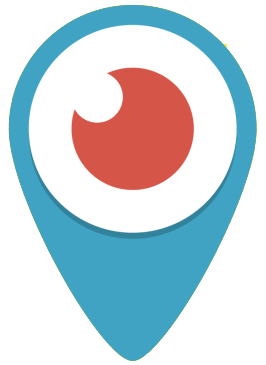 Not able to make it to Rootstech in person? Join us for a selected classes via live-streaming via the free Periscope app, or on our Facebook page.
Not able to make it to Rootstech in person? Join us for a selected classes via live-streaming via the free Periscope app, or on our Facebook page.
Look for the Periscope symbol next to the live-streamed sessions on the schedule above.
(All time listed are Mountain time)
Prizes!
As part of our 10th year & 200th episode celebration, you will have a chance to win fantastic prizes at every session in our booth. This is thanks to the generous genealogy community and our podcast sponsors! Here’s what you can win:
Thursday, February 9
- 10:15 AM – Beginning Genetic Genealogy with Diahan Southard
Your DNA Guide Video Series ($29.95)
Getting Started Quick Guide ($8.95)
- 12:15 PM – 5 Ways to Jog Memories with Sunny Morton
 Story of My Life workbook ($19.99)
Story of My Life workbook ($19.99)
Famicity Premium Subscription ($95.88) This is a brand new, private family social network. Think of it as your family’s Legacy Center!
- 12:40 PM – Naturalization Records with Amie Tennant
RootsMagic 4 CD Set ($119.80) includes RootsMagic Software from our long-time and valued sponsor, the spectacular RootsMagic!
- 2:30 PM – German Ancestral Villages with Jim Beidler, video from Family Tree University
Trace Your German Roots Online book ($21.99) Fabulous resource for Germany research!
Genealogy Gems: Ultimate Research Strategies book ($15.95) Lisa Louise Cooke’s hard to find first book.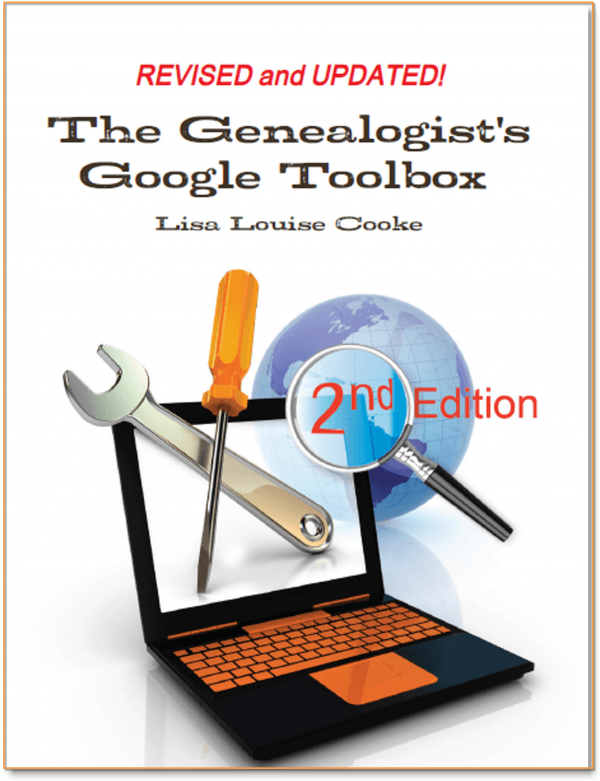
- 4:00 PM – Google Methodology with Lisa Louise Cooke
The Genealogist’s Google Toolbox book, Second Ed. ($24.95) Lisa Louise Cooke’s Google Methodology in one complete and updated volume.
Genealogy Gems Premium Membership (New or renewal) ($39.95) Includes over 30 class videos and over 140 exclusive Premium podcast episodes!
Friday, February 10
 10:15 AM – Creating Family History Videos with Lisa Louise Cooke
10:15 AM – Creating Family History Videos with Lisa Louise Cooke
Animoto Subscription ($96.00) You’re going to flip for this tech tool! Click here to learn more right away.
- 12:15 PM – Your Ethnic DNA Pie with Diahan Southard
Exciting DNA themed prize to be announced soon!
- 12:45 PM – Genealogy Jackpot with Sunny Morton
 SnagIt Software by Techsmith ($49.95) Lisa uses SnagIt constantly, and you’re going to love it for genealogy! TechSmith tools are tops!
SnagIt Software by Techsmith ($49.95) Lisa uses SnagIt constantly, and you’re going to love it for genealogy! TechSmith tools are tops!
Ultimate Family Tree Chart Templates CD ($29.99) Every genealogist needs this from the #1 genealogy magazine, Family Tree Magazine.
- 4:00 PM – Mastering Ancestry.com video from Family Tree University
Genealogy Gems Premium Membership (New or renewal) ($39.95)
- 5:45 PM – Journaling & Scrapbooking Tech with Amie Tennant
FlipPal Mobile Scanner ($149.99) You’ll flip if you win this wonderful prize from our good friends at FlipPal.
- 6:15 PM – Organize with Trello with Drew Smith
Organize Your Genealogy book ($25.99) After you win the book, Drew will sign it for you!
Saturday, February 11
- 10:15 AM – “Big 4” Databases with Sunny Morton
Findmypast Premium Subscription ($239.50) You don’t have to have just British ancestors to love this prize!
- 2:05 PM – Google Earth Strategies with Lisa Louise Cooke
Google Earth for Genealogy Video Series ($24.00) This series will help you go into the genealogy geography stratosphere after learning the basics from Lisa’s session.
Genealogy Gems Premium Membership ($39.95) 7 of the 30 video classes included are on geography and genealogy, like Time Travel with Google Earth! Sweet!
Saturday Starting at 12:15 p.m.
Pick up an entry form, fill it out, and bring the completed form to our booth starting at 12:15 on Saturday for a chance to win our GRAND PRIZE and get our FREE syllabus e-book with all of our booth session handouts. No purchase necessary, and you must be present to win.
Grand Prizes – Saturday at 12:45 PM
3rd Grand Prize: 1 Complete MyHeritage Subscription ($250.74) AND MyHeritage DNA Test Kit ($99.00) from our wonderful podcast sponsor. Thank you MyHeritage!
2nd Grand Prize: Discovery Research Package from Legacy Tree Genealogists ($350.00) Hit a brick wall? These experts will help you bust through! The winner will receive 3.5 hours of research in a digital format which includes: preliminary analysis on your family tree or DNA; discovery of what records are available for the area and time period of interest; development of a research plan; and some work towards your research goals.
1st Grand Prize: 1 Year Ancestry.com World Subscription ($298.00) AND Ancestry DNA Autosomal Test Kit ($99.00) An amazing duo from our friends Ancestry.com.
Book Signings: All Week
Lisa will also be signing copies of her books, including her books Mobile Genealogy: How to Use Your Tablet and Smartphone for Family History Research
and The Genealogist’s Google Toolbox Second Edition. Sunny Morton will be available to sign her new book, Story of My Life. Diahan Southard will also be there answering your DNA questions!
RootsTech 2017 Classes: All Week
Lisa Louise Cooke and her regular Genealogy Gems team members will be teaching several sessions:
Wednesday:
3:00 p.m. Lisa Louise Cooke: Google Books: The Tool You Should Use Every Day! Location: Ballroom C
3:00 p.m. Diahan Southard: DNA: The Glue that Holds Families Together Location: Ballroom J
Thursday:
11:00 a.m. Lisa Louise Cooke: Organizing All This Stuff (Beginner) Location: 155D Getting Started Pass
1:30 p.m. Lisa Louise Cooke: Eliminate the Eye-Rolling with These 7 Awesome Apps! Location: Ballroom C
3:00 p.m. Diahan Southard: From Click to DNA Connection (Lab)
5:00 p.m. Lisa Louise Cooke: 5 Amazing Things Google Earth Can Do for Genealogy (Rootstech Demo Theater, Exhibit Hall)
Friday:
3:00 p.m. Sunny Morton: Comparing the Big 4 (Ancestry, Findmypast, MyHeritage, FamilySearch; Location: Ballroom B
3:00 p.m. Amie Tennant: Crowdsource with Social Media Breaks Through Walls; Location: Room 251D
3:00 p.m. Lisa Louise Cooke: Google Search Power Strategies (Rootstech Demo Theater, Exhibit Hall)
4:30 p.m. Diahan Southard: From Click to DNA Connection (Lab)
Saturday:
11:00 a.m. Lisa Louise Cooke: How to Create a Free Google Earth Map Collection; Location: Ballroom G
11:00 a.m. Diahan Southard: Let Your DNA Tell the Story
11:00 a.m. Amie Tennant: Troll Virtual Cemeteries & Using Cemetery Records; Location: Room 254A
1:30 p.m. Sunny Morton: Relatively Recent Relatives: the 20th Century Search; Location: Room 150
 We can’t wait to meet as many of you as possible! We hope you have a marvelous experience at RootsTech 2017.
We can’t wait to meet as many of you as possible! We hope you have a marvelous experience at RootsTech 2017.
by Lisa Cooke | Jan 11, 2017 | 01 What's New, Genealogy Gems Podcast
The Genealogy Gems Podcast
Episode 199
with Lisa Louise Cooke

In this episode, Lisa celebrates Canada’s 150th anniversary with Claire Banton from Library and Archives Canada. You’ll also hear how Lisa will be marking another anniversary in 2017: the 10th year of this Genealogy Gems podcast.
More episode highlights:
- An inspiring follow-up email from Gay, whose YouTube discovery Lisa shared in episode 198, and a great conference tip from Barbara just in time for RootsTech.
- Genealogy Gems Book Club Guru Sunny Morton announces the new Book Club title.
- Your DNA Guide Diahan Southard shares thoughts about DNA testing with kids.
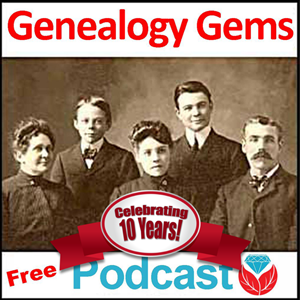 JOIN THE CELEBRATION! 10th ANNIVERSARY AND 200th EPISODE
JOIN THE CELEBRATION! 10th ANNIVERSARY AND 200th EPISODE
You’re invited to send in well-wishes and win a chance at a prize!
Email Lisa by January 31, 2017 at genealogygemspodcast @ gmail.com OR call her voicemail line at 925-272-4021.
Share your first name and where you live.
Share a memory of listening to this podcast, such as: When did you start listening? What’s one of your favorite things you’ve learned from this show?
Lisa will randomly select one response to receive a free year of Genealogy Gems Premium membership. Thanks for helping all of us here at Genealogy Gems celebrate 10 years of doing something we love!
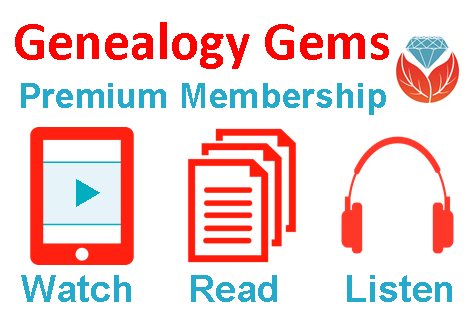
NEWS: ROOTSTECH 2017
RootsTech will be held on February 8-11, 2017 in Salt Lake City, UT: learn more and register.
Genealogy Gems events at RootsTech
Lisa will be live-streaming FREE sessions the marked session via the free Periscope app. Get it in Apple’s App Store or Google Play. Sign up for a free account and follow Lisa Louise Cooke to tune in. Sign up for notifications in Periscope, and your phone will “ping” whenever Lisa starts streaming! Broadcasts stay in the Periscope app for 24 hours. Like and follow the Genealogy Gems Facebook page to hear about more streaming sessions!
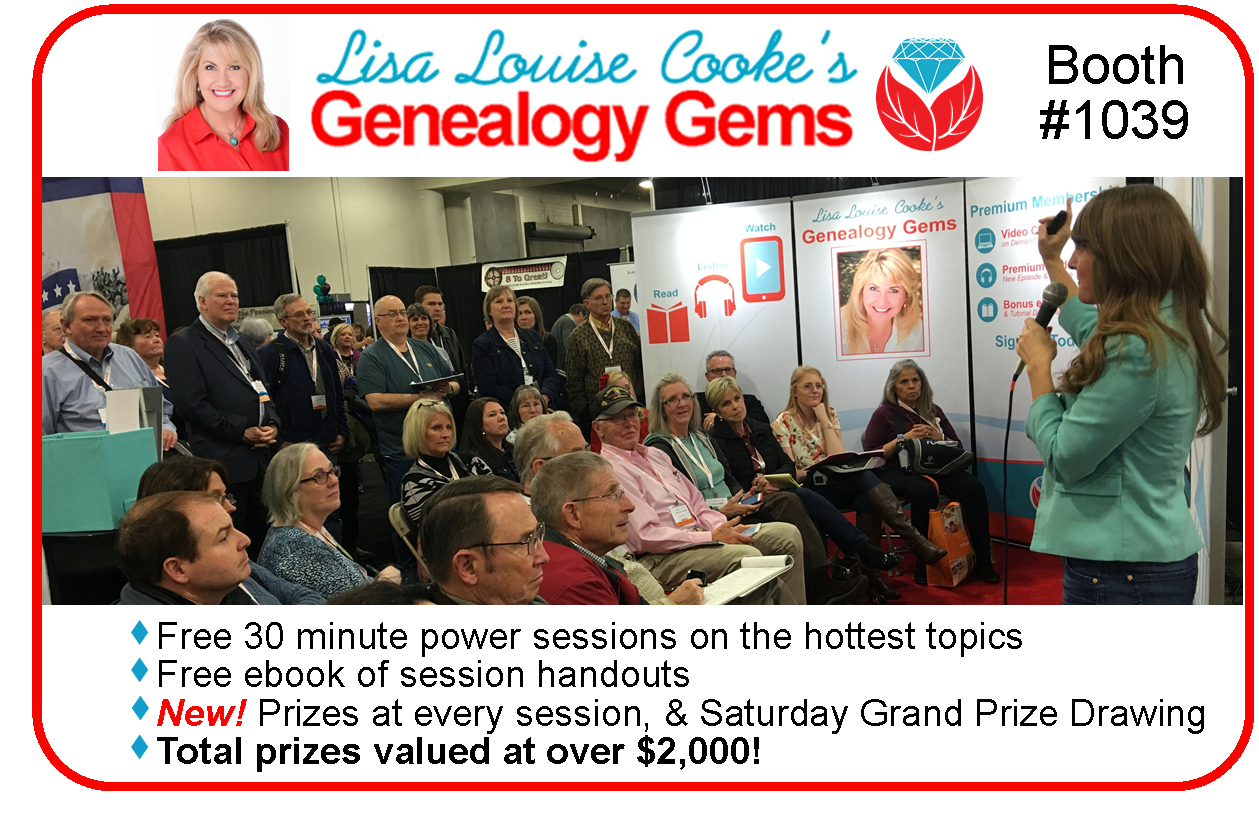

NEWS: FAMICITY KICK-STARTER
 Famicity is a free, private website for families to share pictures, videos, memories, family activities and the family tree. The company has been very successful in France where it was launched, and the founder is working to bring the new English platform to the United States. He’s launched a Kickstarter campaign to support their U.S. launch. Click here to support it.
Famicity is a free, private website for families to share pictures, videos, memories, family activities and the family tree. The company has been very successful in France where it was launched, and the founder is working to bring the new English platform to the United States. He’s launched a Kickstarter campaign to support their U.S. launch. Click here to support it.
BONUS CONTENT FOR GENEALOGY GEMS APP USERS
If you’re listening through the Genealogy Gems app, your bonus content for this episode is a tutorial on Feedly, an easy way to consume just the online content you want. The Genealogy Gems app is FREE in Google Play and is only $2.99 for Windows, iPhone and iPad users

Lisa Louise Cooke uses and recommends RootsMagic family history software. From within RootsMagic, you can search WebHints on FamilySearch.org, Findmypast.com and MyHeritage.com. Soon RootsMagic will also be able to search records and even sync your tree with Ancestry.com, too.
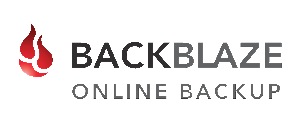 Keep your family history research, photos, tree software files, videos and all other computer files safely backed up with Backblaze, the official cloud-based computer backup system for Lisa Louise Cooke’s Genealogy Gems. Learn more at http://www.backblaze.com/Lisa.
Keep your family history research, photos, tree software files, videos and all other computer files safely backed up with Backblaze, the official cloud-based computer backup system for Lisa Louise Cooke’s Genealogy Gems. Learn more at http://www.backblaze.com/Lisa.
 MAILBOX: YOUTUBE DISCOVERY FOLLOW-UP
MAILBOX: YOUTUBE DISCOVERY FOLLOW-UP
Remember the YouTube success story from Genealogy Gems Podcast episode 198? Gay as a young woman attended a dedication ceremony for the saline water treatment in Freeport, Texas?and with Lisa’s tips she found video footage on YouTube.
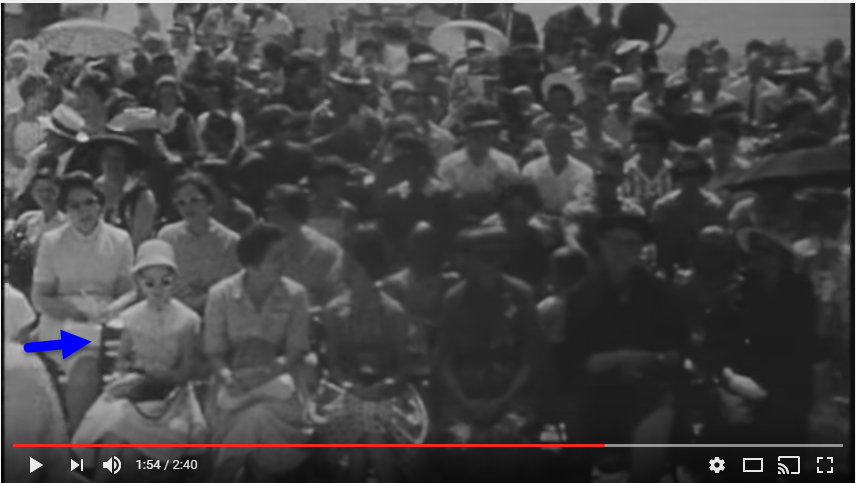
Gay wrote back to send us more about that, including this page from her diary that day and this news clipping. Check out the news clipping to see why that plant was so important, Pres. John F. Kennedy gave the dedication speech. (See what newspapers can tell you?!)
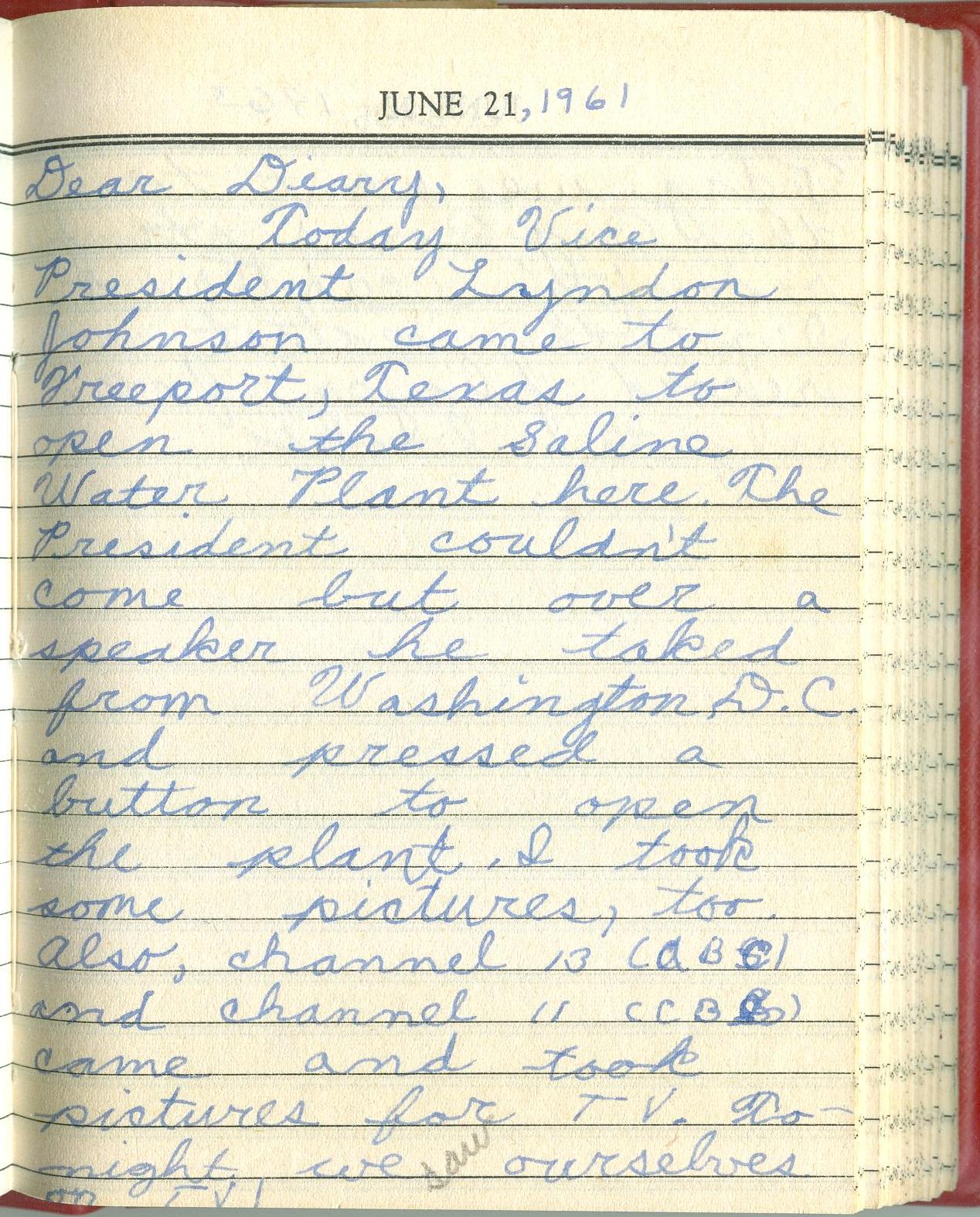
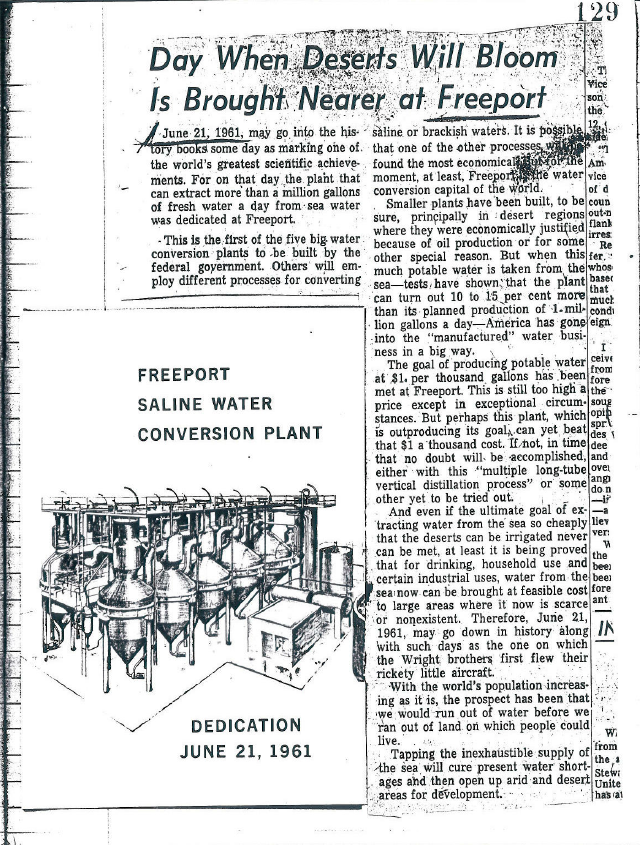
Find your own family history on YouTube. Click here to learn how or read an entire chapter on YouTube in Lisa Louise Cooke’s book, The Genealogist’s Google Toolbox, 2nd revised edition.
Click here to learn how to turn family stories and artifacts like these into videos to share with relatives.
Learn to find articles such as this one that can put your family’s story in context?locally and even nationally. Read How to Find Your Family History in Newspapers by Lisa Louise Cooke.
INTERVIEW: CLAIRE BANTON, LIBRARY AND ARCHIVES CANADA (LAC)
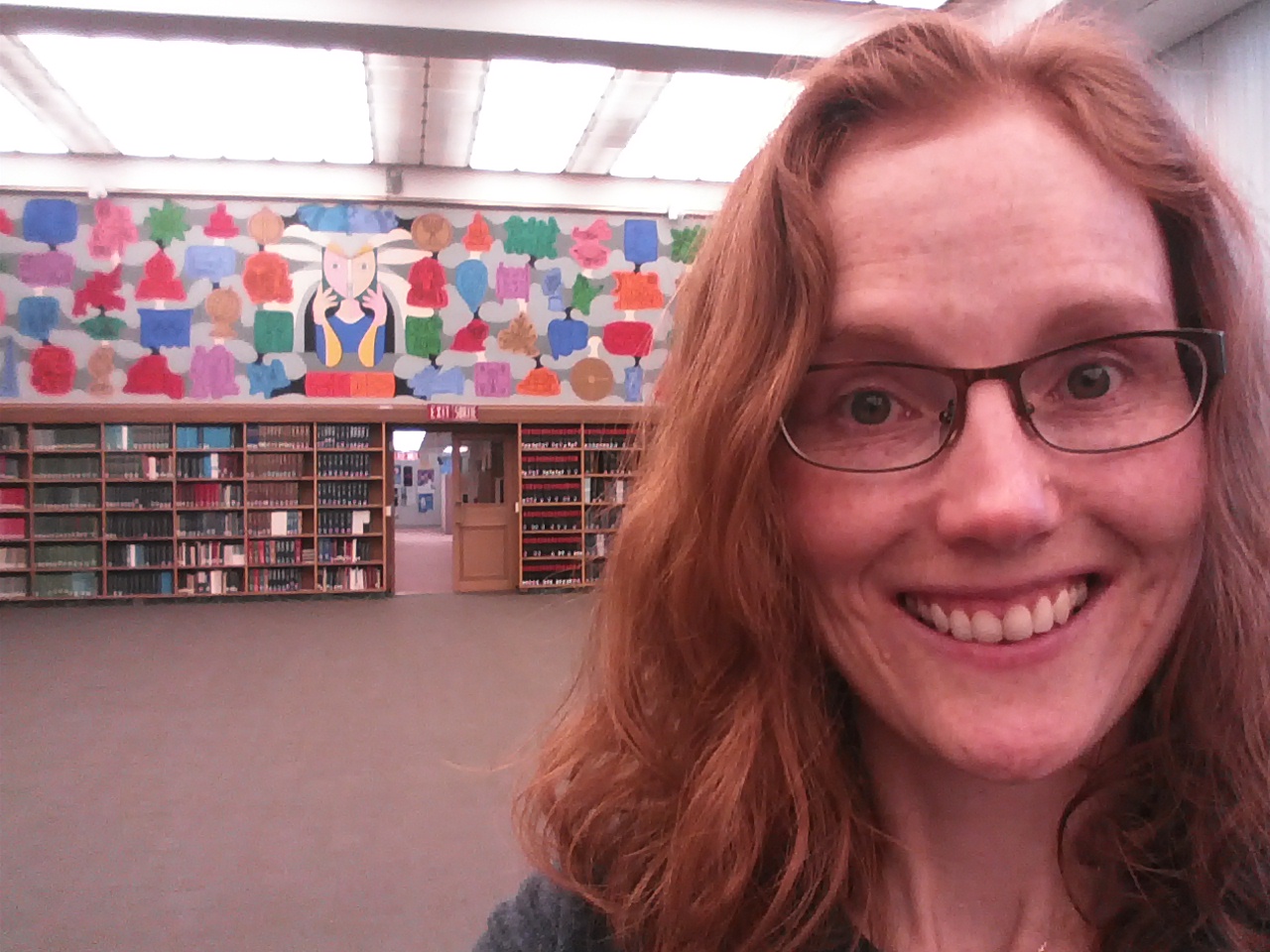 Claire Banton obtained her Masters of Library and Information Studies degree in 2006. She has worked in Reference Services at LAC for 10 years, where she has enjoyed learning something new every day. She is currently Chief, Orientation Services, where she works with an awesome team who help people search for information. She loves being an information detective and helping people overcome their research challenges.
Claire Banton obtained her Masters of Library and Information Studies degree in 2006. She has worked in Reference Services at LAC for 10 years, where she has enjoyed learning something new every day. She is currently Chief, Orientation Services, where she works with an awesome team who help people search for information. She loves being an information detective and helping people overcome their research challenges.
Claire’s tips for genealogy research with LAC:
LAC is very different from the average library. It is both a national library (search the library catalog here) and a a national archive (search the archival catalog here). You don’t have to have an account to search.
Start with the LAC website (genealogy resources page) whether you are visiting in person or not. There are loads of free databases and some unindexed digitized records. The Topics page will tell you what they do and don’t have.
There was no border control from the US to Canada prior to 1908, so there are no Canadian records of earlier crossings. [Tip: see border crossings to the US, 1895-1956 at FamilySearch.org and Ancestry.com.]
Call LAC directly for quick answers. Schedule a Skype call with a genealogy expert to get more in-depth answers: provide background information ahead of time.
Click here to explore (and join) Canada’s 150th birthday celebration.
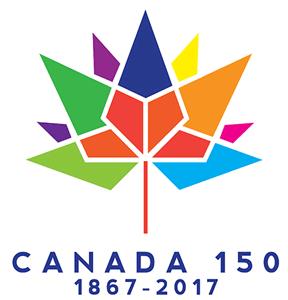
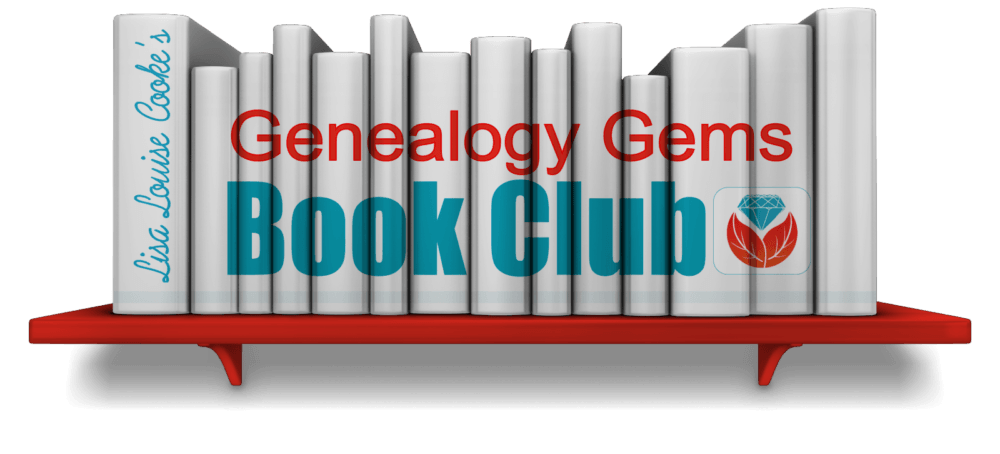 GENEALOGY GEMS BOOK CLUB
GENEALOGY GEMS BOOK CLUB
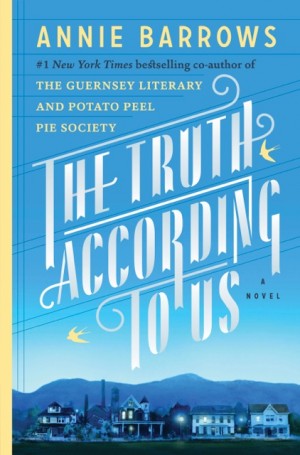
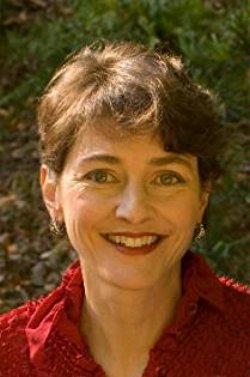
The Truth According to Us by internationally best-selling author Annie Barrows (co-author, The Guernsey Literary and Potato Peel Pie Society and author, Ivy and Bean, children’s book series)
It’s the summer of 1938, and wealthy young socialite Miss Layla Beck is now on the dole as a WPA worker, assigned to write a history of the small town of Macedonia, West Virginia. As she starts asking questions about the town’s past, she is drawn into the secrets of the family she’s staying with?and drawn to a certain handsome member of that family. She and two of those family members take turns narrating the story from different points of view, exploring the theme that historical truth, like beauty, is often in the eye of the beholder.
Click here to read an introduction to using WPA records for genealogy.
Click here to see more Genealogy Gems Book Club selections and how you can listen to Lisa’s upcoming exclusive conversation with author Annie Barrows about The Truth According to Us.
DNA WITH DIAHAN: DNA TESTING FOR KIDS?!
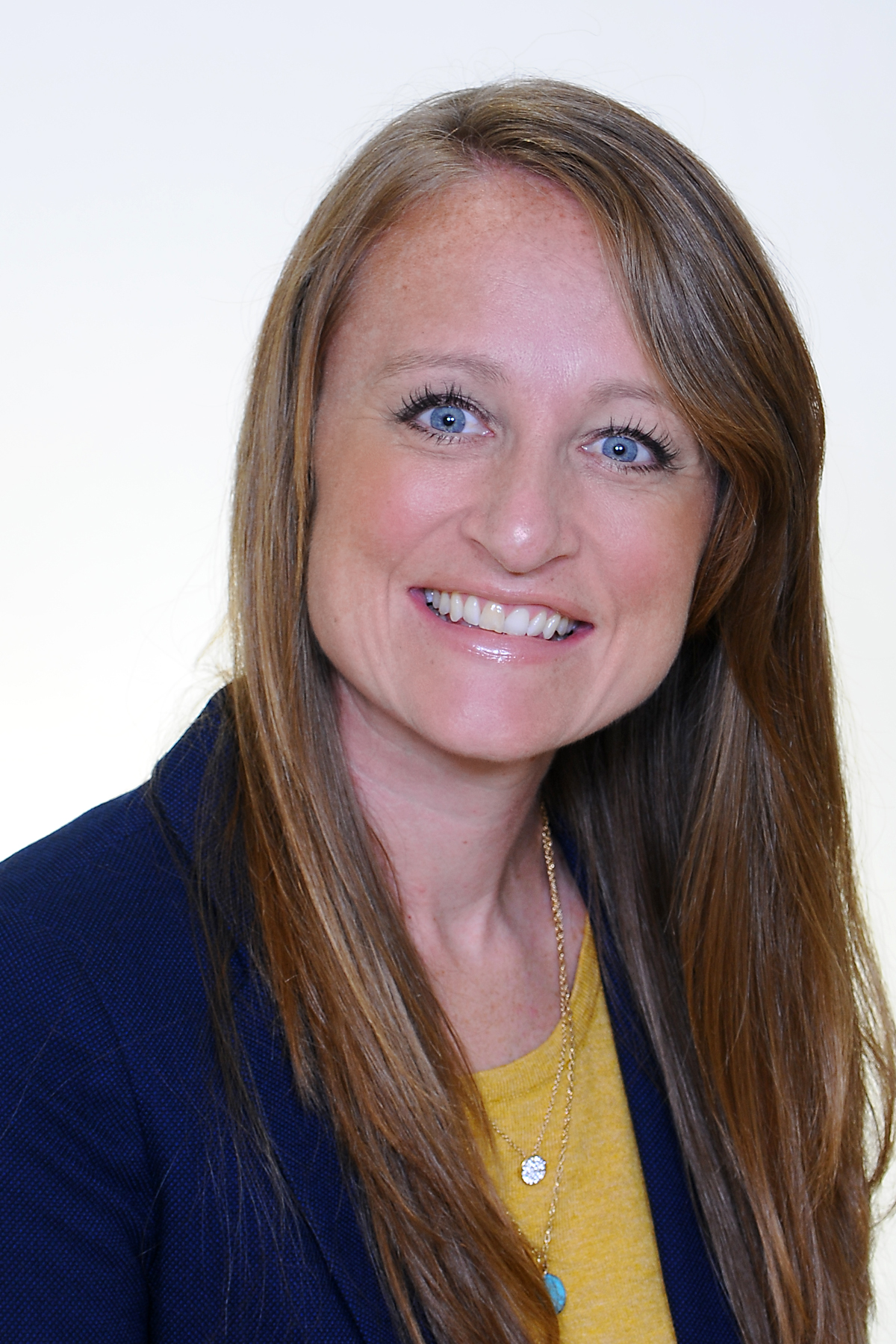 I was talking with a fellow mom the other day about all the demands that are placed on kids’ time today. They have school and homework, many have after school sports and clubs, religious meetings, some have jobs or at least chores at home, not to mention all the time required to text, check social media, and hang out with friends. As parents and grandparents, we want our children to spend time on things that matter, things that will prepare them for their future lives and mold them into their future selves.
I was talking with a fellow mom the other day about all the demands that are placed on kids’ time today. They have school and homework, many have after school sports and clubs, religious meetings, some have jobs or at least chores at home, not to mention all the time required to text, check social media, and hang out with friends. As parents and grandparents, we want our children to spend time on things that matter, things that will prepare them for their future lives and mold them into their future selves.
According to a 2010 study out of Emory University, if we want to encourage kids toward an activity that will positively impact them, we should steer them toward family history. The researchers reported that “children who know stories about relatives who came before them show higher levels of emotional well-being.”
Now, I know I don’t need to convince you of this. You are already sold on genealogy. But I share this in the hope that it will push you over the edge and this will erase any hesitancy you have about sharing this love with your children and grandchildren.
Now, since you know this is me, the genetic genealogist talking, you can probably guess what I’ll suggest for getting kids interested in family history. DNA testing is a great way to personally and physically involve them. First of all, there is the tangible process of taking the sample at home, and the marvel at how such a simple act can produce the amazing display of our ethnicity results.
Since each of us is unique, it will be fun for them to compare with you and other relatives to see who got what bit of where. This will naturally lead to questions about which ancestor provided that bit of Italian or Irish, and wham! You’ll be right there to tell them about how their 5th great grandfather crossed the ocean with only the clothes on his back, determined to make a new start in a new land.
If there are parts of the ethnicity report that you can’t explain, use that as a hook to encourage them to start digging and to find out why you have that smattering of eastern European or south east Asian. Taking them for a tour of the DNA match page you can show them how they share 50% of their DNA with their sister (whether they like it or not!) and how they share 25% with you, their grandparent!
DNA test results give kids a totally unique look at their personal identity with technology that is cutting edge. Looking at their DNA test results can turn into a math lesson, a science lesson, a geography lesson, a lesson on heredity or biology, a discussion on identity?wherever you want to go with it! DNA is the perfect introduction to the wonders that genealogy can hold, especially for children who are so good at wondering.
Click here to learn more about Diahan’s series of how-to videos, available to Gems fans for a special price. Or start your DNA journey with the guide that will help you get started with kids’ genetic genealogy:
Autosomal DNA for the Genealogist
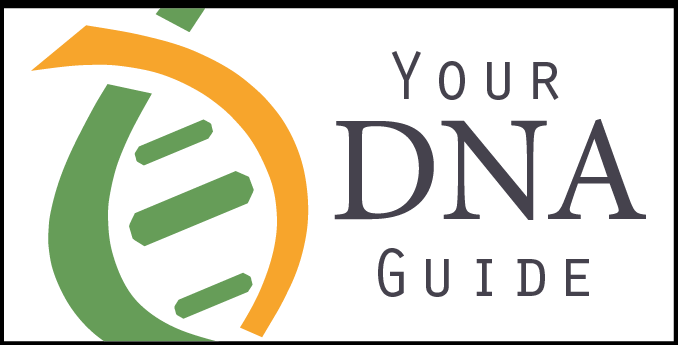
PROFILE AMERICA: ELLIS ISLAND
Click here to watch the official, award-winning documentary shown at Ellis Island free online at YouTube.
PRODUCTION CREDITS
Lisa Louise Cooke, Host and Producer
Sunny Morton, Editor
Amie Tennant, Content Contributor
Diahan Southard, Your DNA Guide, Content Contributor
Lacey Cooke, Service Manager
Vienna Thomas, Associate Producer
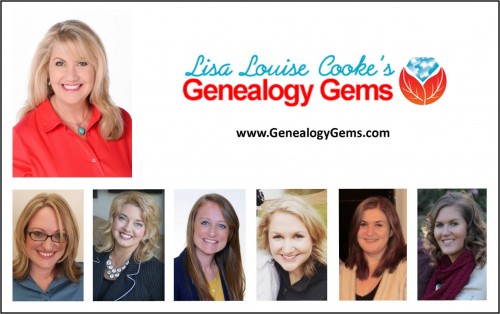
Check out this new episode!
Disclosure: This article contains affiliate links and Genealogy Gems will be compensated if you make a purchase after clicking on these links (at no additional cost to you). Thank you for supporting Genealogy Gems!
by Lisa Cooke | Mar 8, 2017 | 01 What's New, Genealogy Gems Podcast
with Lisa Louise Cooke
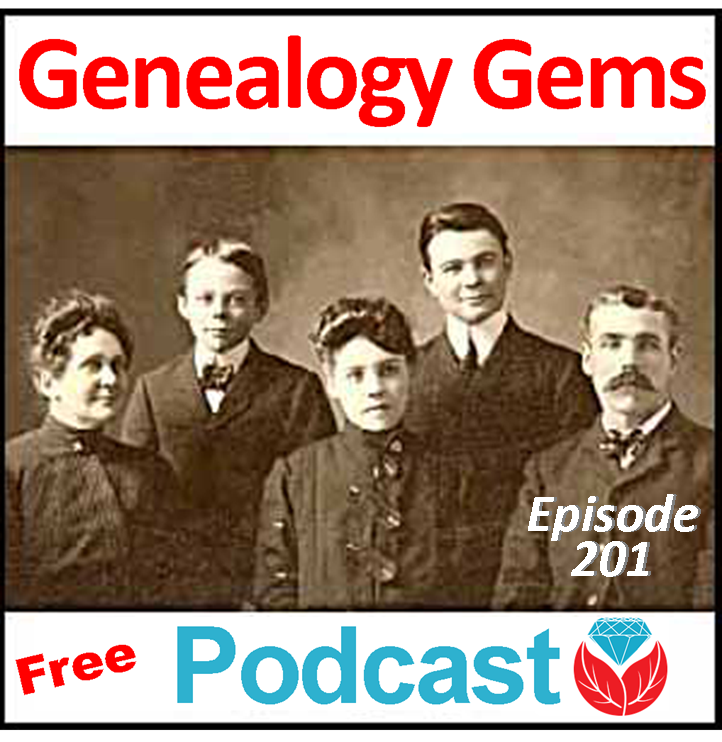

In this episode, I chat with Angela Walton-Raji, expert in U.S. and African-American research, about tips for interviewing relatives and taking your African-American family tree back to the era of slavery.
Other highlights of this episode include:
- A RootsTech 2017 recap, with info on archived streaming sessions;
- Great news from Findmypast about its new Catholic Heritage Archive;
- A ground-breaking study from AncestryDNA that identifies specific migration patterns among genetically-related clusters of people;
- Follow-up mail from Lisa’s Episode 200 celebration;
- An expert Q&A on finding relatives who don’t appear in the census where you expect them to;
- A teaser clip from the upcoming Genealogy Gems Book Club interview with Annie Barrows, author of The Truth According to Us.
ROOTSTECH 2017 RECAP
Genealogy Gems booth streaming sessions are on the Genealogy Gems Podcast Facebook page. “Like” our page, and then scroll down to Videos and click See all (shown here).
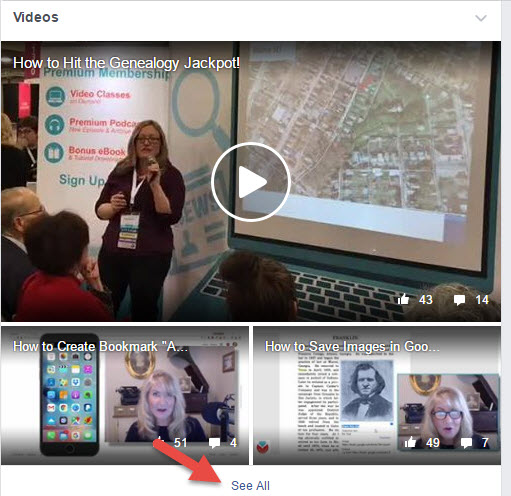
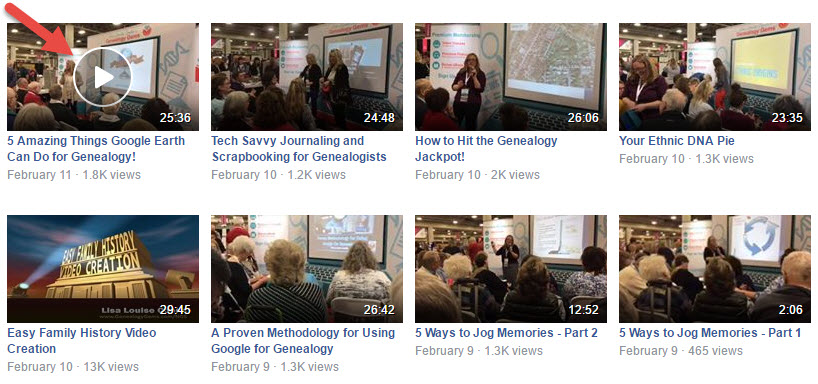
You’ll find:
- Lisa Louise Cooke: Google search methodology for genealogy, using Google Earth for genealogy and creating memorable, easy family history videos;
- Diahan Southard: Understanding your DNA ethnic pie chart;
- Amie Tennant: Digital journaling and scrapbooking;
- Sunny Morton: Jogging your memories and “Genealogy Jackpot” (on researching her ancestors’ survival of the Great Johnstown flood of 1889.
POPULAR ROOTSTECH STREAMING LECTURE “THE BIG 4” NOW ONLINE
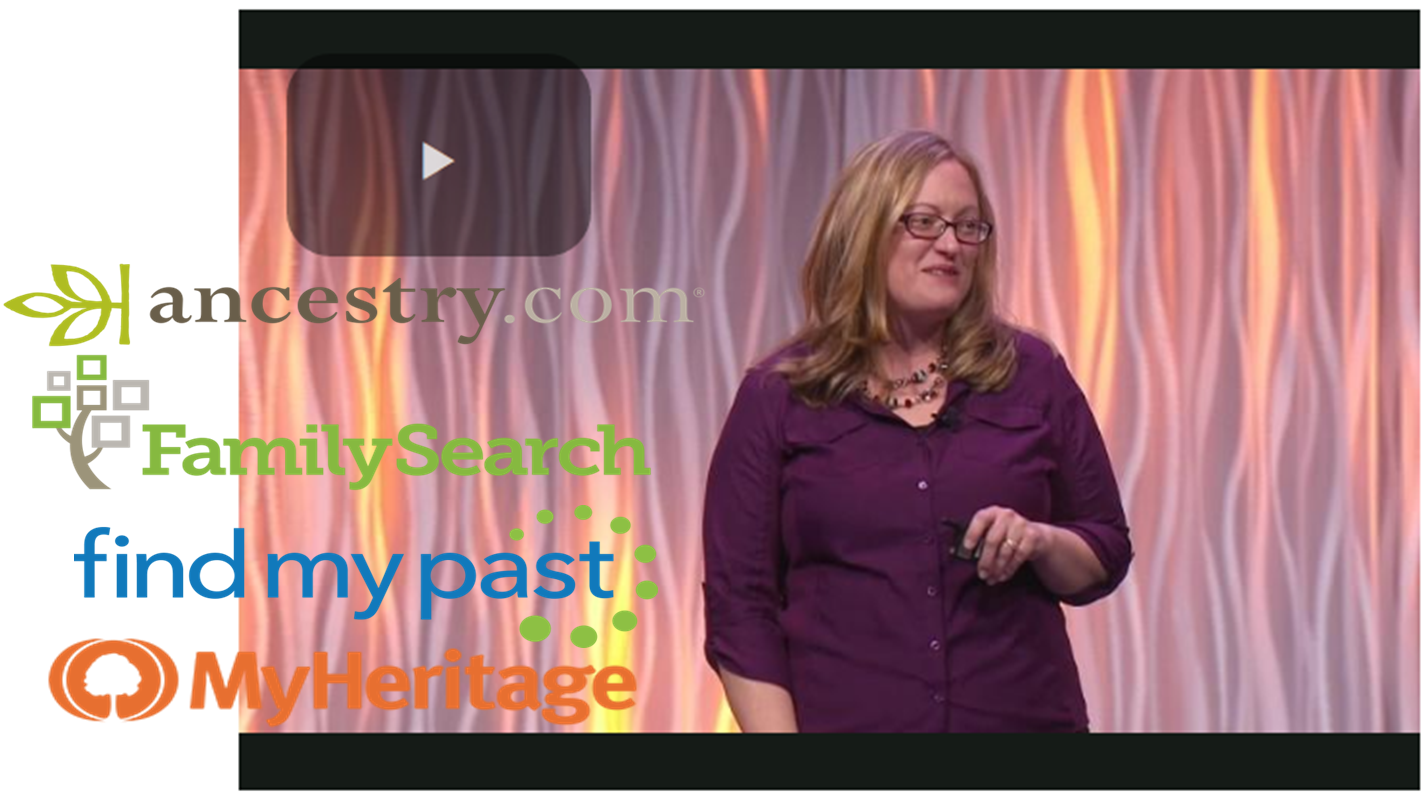
Watch “The Big 4: Comparing Ancestry, FamilySearch, Findmypast and MyHeritage” by Gems Editor Sunny Morton and catch a summary of its main points
Catch our future free Genealogy Gems streaming sessions on Facebook!
You can also Like and follow the Genealogy Gems Facebook page to hear about (and sometimes watch) streaming sessions.
GENEALOGY GEMS APP BONUS MATERIAL
If you listen through the Genealogy Gems app (FREE in Google Play) and $2.99 for Windows, iPhone and iPad users), your bonus material for this episode is a short video clip showing a time-lapse perspective on RootsTech 2017 from the exhibitor hall.
NEWS: FINDMYPAST CATHOLIC HERITAGE ARCHIVE
Catholic Heritage Archive at Findmypast.com
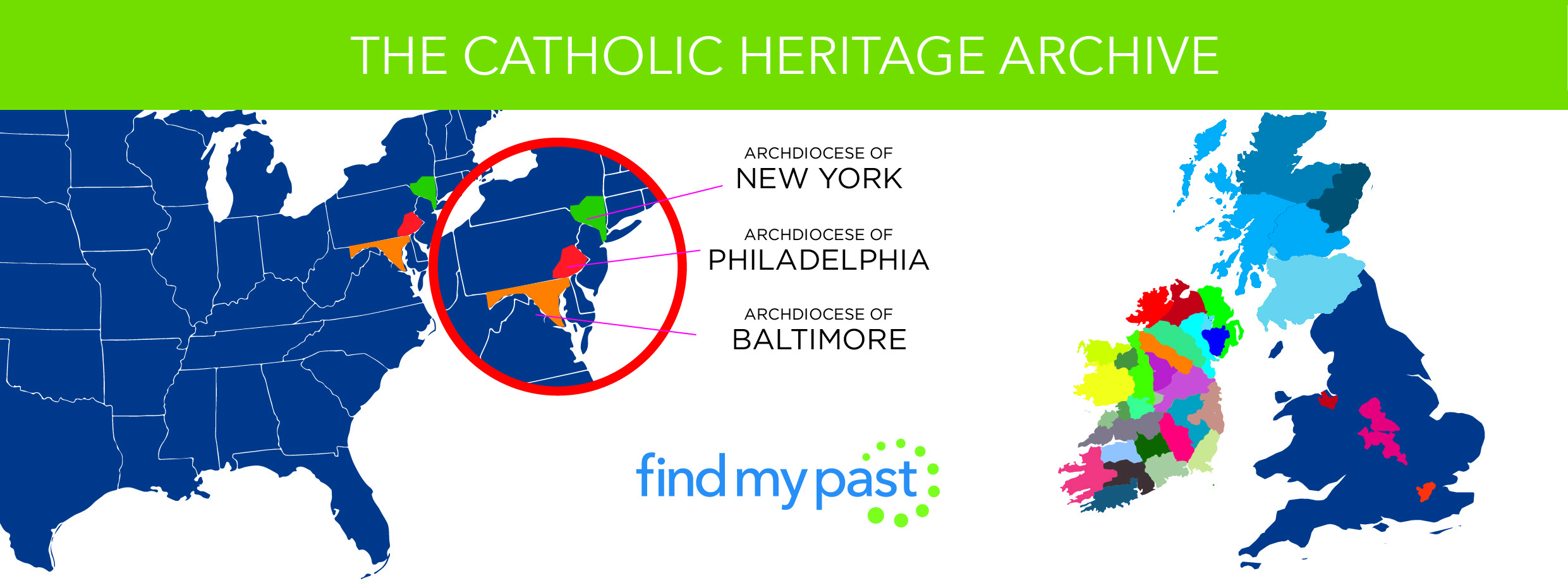
In the Boston Globe: Archdiocese of Boston and New England Historic Genealogical Society plans to bring 10 million+ parish records online
MAILBOX:

Robin mentioned she’s learned so much from Lisa on these topics:
 Start creating fabulous, irresistible videos about your family history with Animoto.com. You don’t need special video-editing skills: just drag and drop your photos and videos, pick a layout and music, add a little text and voila! You’ve got an awesome video! Try this out for yourself at Animoto.com.
Start creating fabulous, irresistible videos about your family history with Animoto.com. You don’t need special video-editing skills: just drag and drop your photos and videos, pick a layout and music, add a little text and voila! You’ve got an awesome video! Try this out for yourself at Animoto.com.
 Keep your family history research, photos, tree software files, videos and all other computer files safely backed up with Backblaze, the official cloud-based computer backup system for Lisa Louise Cooke’s Genealogy Gems. Learn more at http://www.backblaze.com/Lisa.
Keep your family history research, photos, tree software files, videos and all other computer files safely backed up with Backblaze, the official cloud-based computer backup system for Lisa Louise Cooke’s Genealogy Gems. Learn more at http://www.backblaze.com/Lisa.
INTERVIEW: ANGELA WALTON-RAJI

Angela Walton-Raji instructs the African-American Genealogy Research Essentials webinar.
Angela’s oral history questions: What to ask your elders
Did they happen to know anyone who had been born a slave when they were a child?
Who was the oldest person that you remember when you were a child? And did that person ever talk about anyone who may have been enslaved?
What do you know about where the family was from? (Were we always from Georgia, or, were we always from Pennsylvania, or was there a time when we came from another place? (Read more about the Great Migration she mentioned.) Why did we move? Who remembers that journey?
Were people involved in the Civil Rights movement, in the Garvey era, with the Freedom Riders, or other important events in their lifetime? What kinds of things did they see?
Who in the family participated in the military (in World War II, I, the Spanish-American War)? African-American military units through the mid-20th century were still referred to as Buffalo soldiers. (She mentioned the Triple Nickel, a unit of all-black World War II paratroopers.
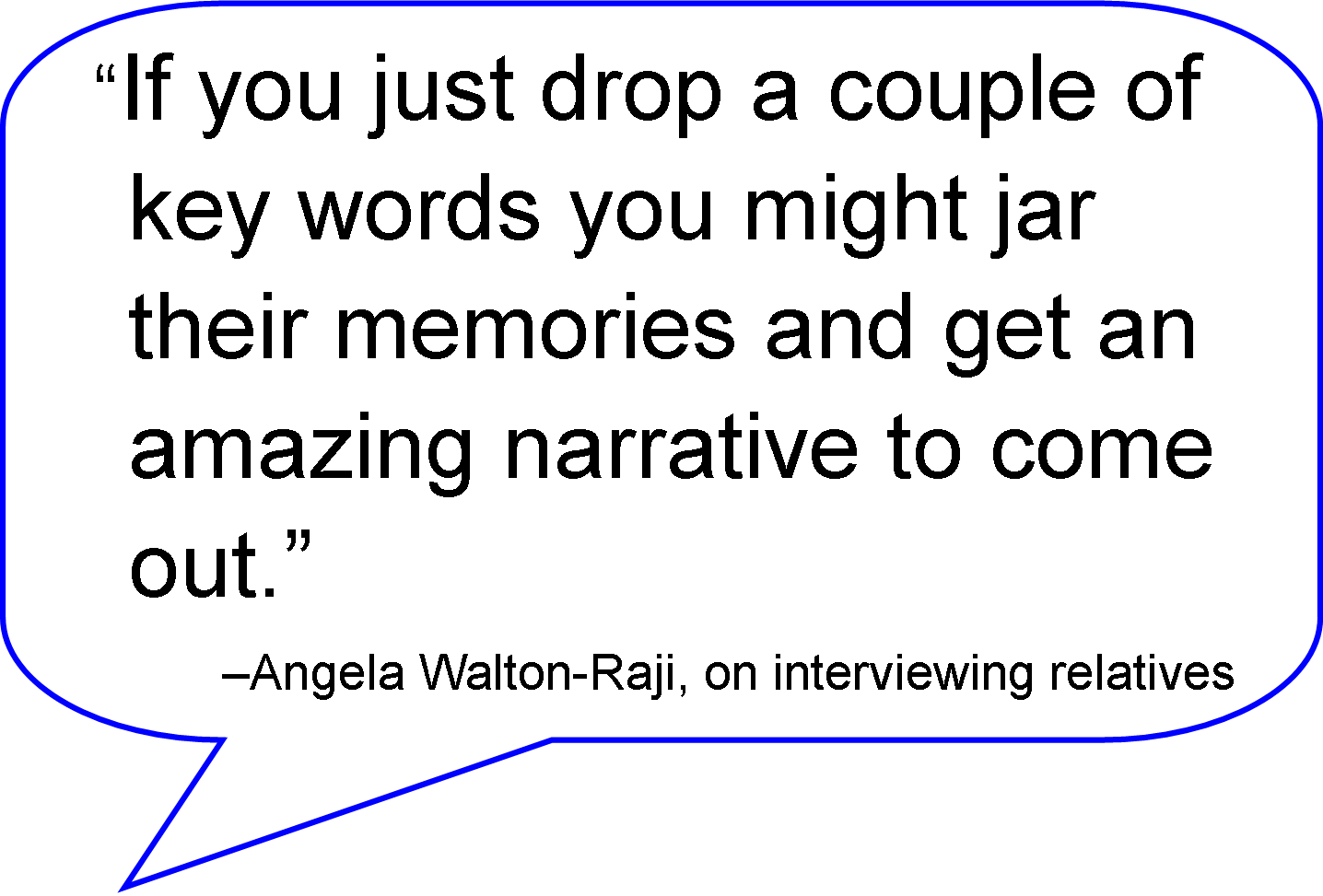
MyHeritage.com is the place to make connections with relatives overseas, particularly with those who may still live in your ancestral homeland. Click here to see what MyHeritage can do for you: it’s free to get started.

Lisa Louise Cooke uses and recommends RootsMagic family history software. From within RootsMagic, you can search WebHints on FamilySearch.org, Findmypast.com and MyHeritage.com. Soon RootsMagic will also be able to search records and even sync your tree with Ancestry.com, too.
EXPERT TIP ON FINDING ANCESTORS “MISSING” IN CENSUSES
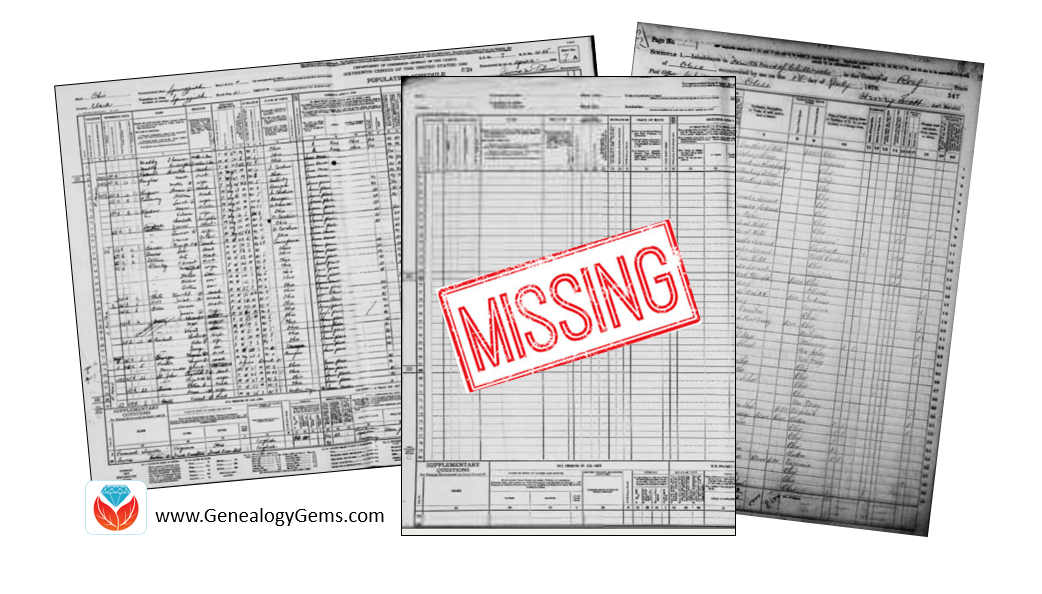
Read their Q&A: Kate Eakman takes on a Gems listener question from someone who has already done a lot of work trying to locate a relative in the 1940 U.S. census
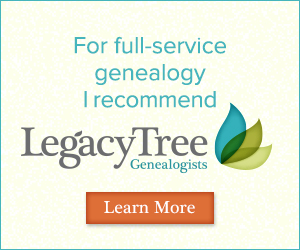
Legacy Tree Genealogists provides expert genealogy research service that works with your research goals, budget and schedule. The Legacy Tree Discovery package offers 3.5 hours of preliminary analysis and research recommendations: a great choice if you’ve hit a brick wall in your research and could use some expert guidance.
DNA WITH YOUR DNA GUIDE DIAHAN SOUTHARD: ANCESTRYDNA STUDY BREAKTHROUGH

There is no doubt that this is an exciting time to be a genealogist. Here at Genealogy Gems, we are announcing new record collections online every month, advances in genealogy databases and their ability to retrieve the information we are looking for, and of course, DNA testing. There really has been no time in history where such a wealth of information about our past has been so readily available to so many.
In another ground-breaking development in the DNA world has been a recent publication in a scientific journal by the scientific team at AnccestryDNA. It is titled, “Clustering of 770,000 genomes reveals post-colonial population structure of North America.” Or, in more understandable terms, “Your DNA can tell us where you came from in America in the last 500 years.”
Wow, right? So how did they do this?
Well, the power really is in the numbers. In this particular paper they used 770,000 people, but now that they are approaching having testing 4 million people, you can bet the same principles will be applied to a larger data set and we will see even more as a result. But even though it takes a large data set to accomplish this, it really all still comes down to the relationship of two people.
To start, Ancestry determines how just two people are genetically related. Then they find how those two are related to a third, again, looking only at pairs of people. This goes on and on and on until everyone in the group as been compared. Then we use a graph to plot those relationships, with those more closely related clustering around each other. Then the real key, the point where we see the marriage of genetics and genealogy: they add in the family history information for each of these individuals in the cluster. What they found was astounding. They have displayed the data in Figure 3 in the paper:
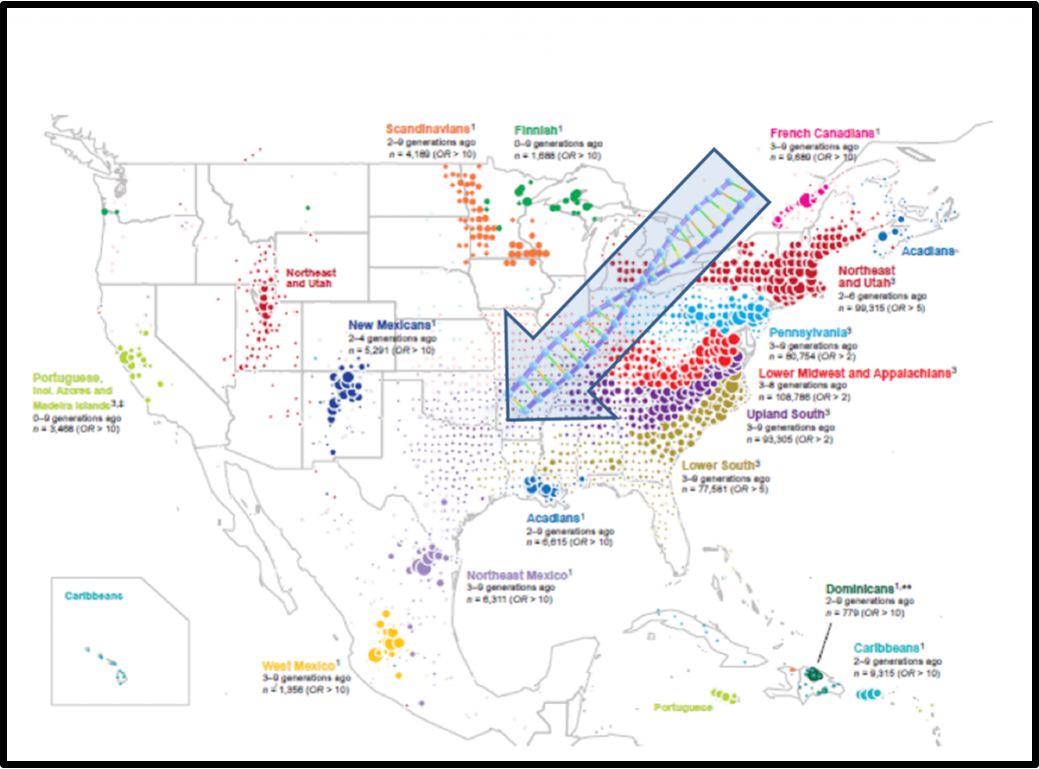
Distribution of ancestral birth locations in North America. Summary map from Nature Communications; click to see article with full explanation of map data. Image used with permission of Ancestry.com.
It is a map of the United States with colored dots scattered across the landscape. The location of the dots corresponds to the genealogy of those tested, while the color of the dots relates to their genetic clustering. Those who clustered closest together are the same color. The result is a nearly perfect rainbow, with each color holding its respective spot on the map, with very little overlap between groups. (There are actually two maps in the paper, just to make things easier to see.)
We might be tempted when looking at the maps to think, oh, well, of course there is a large population of European Jews in New York, everyone knows that, no breakthrough there. But it IS!! This isn’t their family history, or their accent or their culture that is telling us this, it is their genetics!
As if that wasn’t exciting enough, further on in the paper they describe how we can trace migration patterns of different groups over just a few generations. In the paper they specifically mention French Canadians and Cajuns/Acadians, but this same principle can theoretically be applied to dozens of other groups.
For example, let’s say you have an ancestor in Texas about 4 generations ago, but you aren’t sure where she came from. If technology like what is published in this paper ever reaches your testing company, your DNA could tell you that you fit into the Lower South group, meaning that your ancestor likely hails from, well, the South!
This is just a glimpse into what the advances in genetics are bringing to your genealogy toolbox. So hang on to your hats, and keep tuned in here at Genealogy Gems for all of the latest updates.
GENEALOGY GEMS BOOK CLUB



The Truth According to Us by internationally bestselling author Annie Barrows
It’s the summer of 1938, and wealthy young socialite Miss Layla Beck is now on the dole as a WPA worker, assigned to write a history of the small town of Macedonia, West Virginia. As she starts asking questions about the town’s past, she is drawn into the secrets of the family she’s staying with and drawn to a certain handsome member of that family. She and two of those family members take turns narrating the story from different points of view, exploring the theme that historical truth, like beauty, is often in the eye of the beholder.
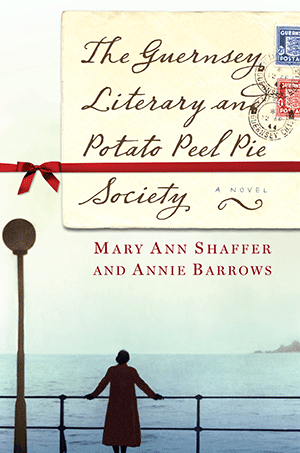
Annie Barrows is also the co-author of The Guernsey Literary and Potato Peel Pie Society. This novel takes place after World War II in a London recovering from the Blitz and an island recovering from German occupation. At the heart of Guernsey is an unlikely love story and the inspiring tale of a community that took care of each other in their darkest days with humor, compassion and good books.
Click here to see more Genealogy Gems Book Club selections and how you can listen to Lisa’s upcoming exclusive conversation with author Annie Barrows about The Truth According to Us.
Subscribe to the Genealogy Gems newsletter to receive a free weekly e-mail newsletter, with tips, inspiration and money-saving deals.
PRODUCTION CREDITS
Lisa Louise Cooke, Host and Producer
Sunny Morton, Editor
Amie Tennant, Content Contributor
Diahan Southard, Your DNA Guide, Content Contributor
Lacey Cooke, Service Manager
Vienna Thomas, Associate Producer
Hannah Fullerton: Production Assistance

Check out this new episode!
Disclosure: This article contains affiliate links and Genealogy Gems will be compensated if you make a purchase after clicking on these links (at no additional cost to you). Thank you for supporting Genealogy Gems!













 A multi-generational novel about a Swedish immigrant and the town he builds in the American Midwest by luring other Swedish settlers and a mail-order bride. As characters die, they take up residency in the local cemetery and continue to comment on the activities and people of the town.
A multi-generational novel about a Swedish immigrant and the town he builds in the American Midwest by luring other Swedish settlers and a mail-order bride. As characters die, they take up residency in the local cemetery and continue to comment on the activities and people of the town.











 We can’t wait to meet as many of you as possible! We hope you have a marvelous experience at RootsTech 2017.
We can’t wait to meet as many of you as possible! We hope you have a marvelous experience at RootsTech 2017. JOIN THE CELEBRATION! 10th ANNIVERSARY AND 200th EPISODE
JOIN THE CELEBRATION! 10th ANNIVERSARY AND 200th EPISODE










 GENEALOGY GEMS BOOK CLUB
GENEALOGY GEMS BOOK CLUB

 I was talking with a fellow mom the other day about all the demands that are placed on kids’ time today. They have school and homework, many have after school sports and clubs, religious meetings, some have jobs or at least chores at home, not to mention all the time required to text, check social media, and hang out with friends. As parents and grandparents, we want our children to spend time on things that matter, things that will prepare them for their future lives and mold them into their future selves.
I was talking with a fellow mom the other day about all the demands that are placed on kids’ time today. They have school and homework, many have after school sports and clubs, religious meetings, some have jobs or at least chores at home, not to mention all the time required to text, check social media, and hang out with friends. As parents and grandparents, we want our children to spend time on things that matter, things that will prepare them for their future lives and mold them into their future selves.








